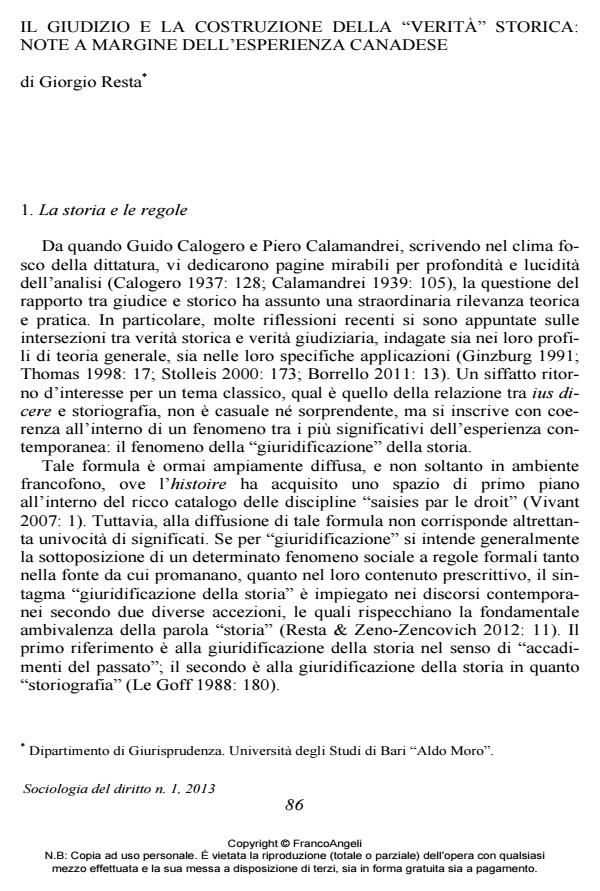The verdict and the construction of historical "truth": Comments on the Canadian experience
Journal title SOCIOLOGIA DEL DIRITTO
Author/s Giorgio Resta
Publishing Year 2013 Issue 2013/1
Language Italian Pages 23 P. 86-108 File size 235 KB
DOI 10.3280/SD2013-001007
DOI is like a bar code for intellectual property: to have more infomation
click here
Below, you can see the article first page
If you want to buy this article in PDF format, you can do it, following the instructions to buy download credits

FrancoAngeli is member of Publishers International Linking Association, Inc (PILA), a not-for-profit association which run the CrossRef service enabling links to and from online scholarly content.
This essay looks into the problem of the "legalisation" of history, examining the Canadian experience of the last twenty years and dwelling on three main questions, which it discusses in relation to the jurisprudence established by the Supreme Court of Canada. The first is that of the use of historical arguments on the part of the judge and of the increasing presence of historians in the process of judicial decision-making. The second is that of the admissibility of "oral history" as a source of proof in the framework of conflicts concerning the ancestral rights of Native American populations. The third is that of reparations in compensation for the suffering inflicted in the course of history, studied in the tragic affair of the Indian residential schools.
Keywords: History, Memory, Law, Reparations in compensation, Ancestral rights
Giorgio Resta, Il giudizio e la costruzione della "verità" storica: note a margine dell’esperienza canadese in "SOCIOLOGIA DEL DIRITTO " 1/2013, pp 86-108, DOI: 10.3280/SD2013-001007